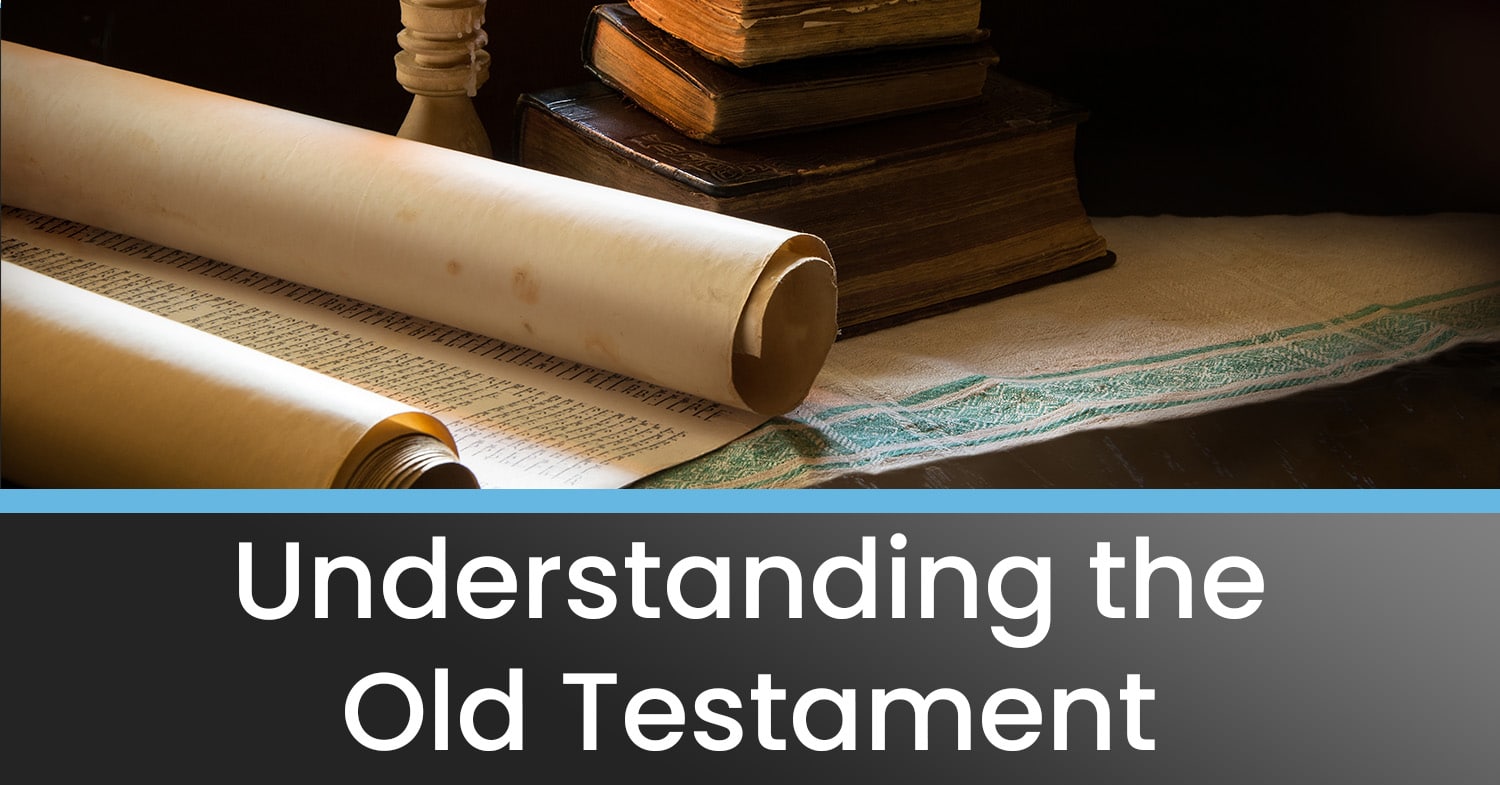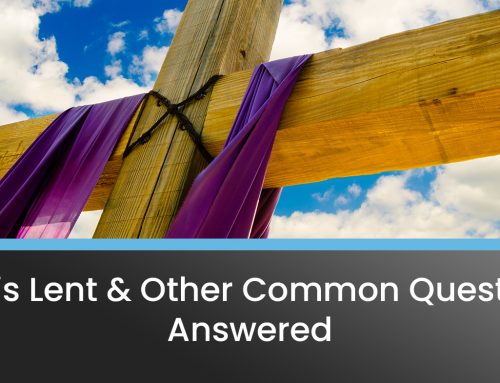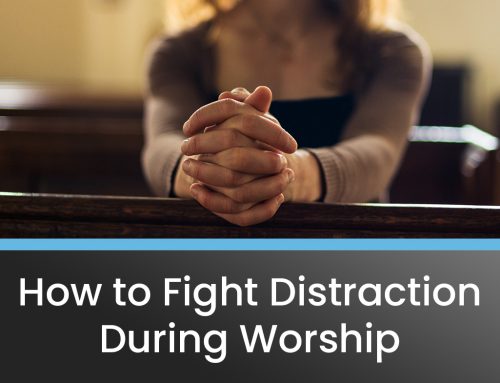Genesis – Book of Beginnings
The Old Testament begins with Genesis recording the creation of all things out of nothing. God, the only eternal, uncreated being – Father, Son, and Holy Spirit – did the creating, bringing into being water, land, sky, sun, moons, planets, stars, trees, animals, birds, and the crown of creation: mankind; a man and women, made in the image of God for loving fellowship with God. With one rule, God tested them to see if they would indeed honor God and treasure that fellowship. Tempted by a rebellious angel called Satan, man chose to disobey God. This brought corruption to the entire cosmos and the consequence of sin – death – to their spirits, which also would display in physical death. Still, God loved them and promised a Savior who would redeem mankind and reclaim creation. Mankind increased in number but became so evil that God, through a worldwide flood, destroyed all mankind except for one family. God chose a man named Abraham, a descendant of that family, to be the one through whom He would someday send the Savior. Job, who was faithful in the midst of suffering, also likely lived at this time. God pictured the promise of a new creation to Abraham by promising him a land he had never seen before. Abraham traveled there. God named one of His descendants “Israel,” so future generations came to be called the “Israelites.” Then God portrayed how He alone would be able to bring about man’s salvation by causing Abraham’s descendants to have to leave that land and become slaves in Egypt for 400 years.
From Slavery to Promised Land – God’s Divine Object Lesson
The Book of Exodus records how God sent a man named Moses to deliver His people out of slavery, bringing them back to the “Promised Land.” First, God demonstrated His power over all the Egyptian false gods through related plagues. When God’s people left Egypt, He led them to the Red Sea, parted the waters, and brought them safely across, while at the same time drowning the pursuing king of Egypt and his army. The latter part of Exodus, along with Leviticus, Numbers, and Deuteronomy, record how God led His people to Mount Sinai and gave them His laws of how to live and how to worship. He provided water and food for them in the desert. Because of complaining and mistrust, they wandered the desert for 40 years. After defeating their enemies along the way and in the land itself, God finally brought His people under Joshua’s leadership into the abundant land of promise.
Cycles of Wandering, Punishment, Repentance, Forgiveness
But when times were good, the people would turn away from God and turn the idols. God used enemy nations to bring them to repentance, sending Judges to rescue His people. He sent prophets like Samuel to speak to and warn His people. The cycle repeated often: the people would go astray, God would bring punishment, they would repent, and God would forgive and welcome them back. The books of Ruth and Esther show God’s faithful care of His people during this time. Eventually, the people ask for a king.
Kingdoms and Temple Established
After one proud and erring king, God chose and blessed the nation through the leadership of King David, a man who wrote many Psalms; he foreshadowed the blessed kingdom of the true King-Savior who would someday come. David’s wise son Solomon, who wrote Proverbs, Song of Solomon, and Ecclesiastes, built a magnificent temple where the Lord was to be worshiped through sacrifices and prayer. Even with this magnificent and constant reminder of God’s presence, many of God’s people still turned away from Him. Some kings led well, most led people away from God; that history is recorded in Kings and Chronicles.
Faithlessness Leads to Exile
All along, God spoke both words of warning and comfort as needed to His people and the surrounding nations through prophets, who lived and served, with some overlap, in this general order: Joel, Jonah, Amos, Micah, Hosea, Isaiah, Nahum, Zephaniah, Jeremiah, and Habakkuk. Yet the faithlessness of God’s people got so bad that He allowed the neighboring countries of Assyria and Babylon to conquer the land, destroy the temple, and take His people into exile. In the gloom of the situation, God inspired the prophet Jeremiah to write Lamentations. Edom, a neighboring nation, cheered the downfall of the Israelites, and God spoke judgment against them through Obadiah.
Returned Again – The Savior Promised Again
Even in exile, God showed favor to those among His people who honored Him, like Daniel. Through the prophet Ezekiel, God promised to return His people to their own land and allow Jerusalem and the destroyed temple to be rebuilt. God brought this about through Ezra, the priest, and Nehemiah, the governor. During this time, God, through the prophets Haggai, Zechariah, and Malachi, encouraged and admonished the people and affirmed the coming of the Savior. Malachi even mentioned a forerunner who would help God-fearing people recognize God’s Savior.
Waywardness Confirmed – The Savior Needed Indeed
The Old Testament shows that there is one true almighty God over all the false gods that man invents. It shows the sad, pervasive effects of human sin, but also God’s love, mercy, and faithfulness toward repentant sinners. When God gave one rule, man did not keep it. When God gave many rules in the laws given through Moses, amazingly, man got to the point where he thought he could keep them all well enough to earn God’s favor. In addition, in spite of changing “desert wanderings” to a “land flowing with milk and honey” and having a glorious Temple as a constant reminder of the awesome presence of God, still, the people often chose to forget about God and were unfaithful. No matter how many human heroes God sent, still, it was obvious all mankind needed a Divine Hero. The Old Testament is the multi-chaptered handwriting on the wall that confirmed the stubbornness of sinners and their need for a Savior, and at the same time confirmed that God was faithful and would indeed send that Savior. The New Testament is the story of that fulfillment: God’s Son, Jesus Christ, came from heaven to earth, being born of a virgin and living a completely faithful, sinless life; yet He gave up His life and conquered death so that all people might be forgiven and once again have loving fellowship with God.
At Christ Lutheran Church, Montrose, we invite you to plan a visit and come grow with us in seeing the Bible’s big picture of what God has been doing since the beginning of time to convey His love and save you and me and all believers for the time when time is no more – when the true Promised Land of heaven becomes our eternal home.





